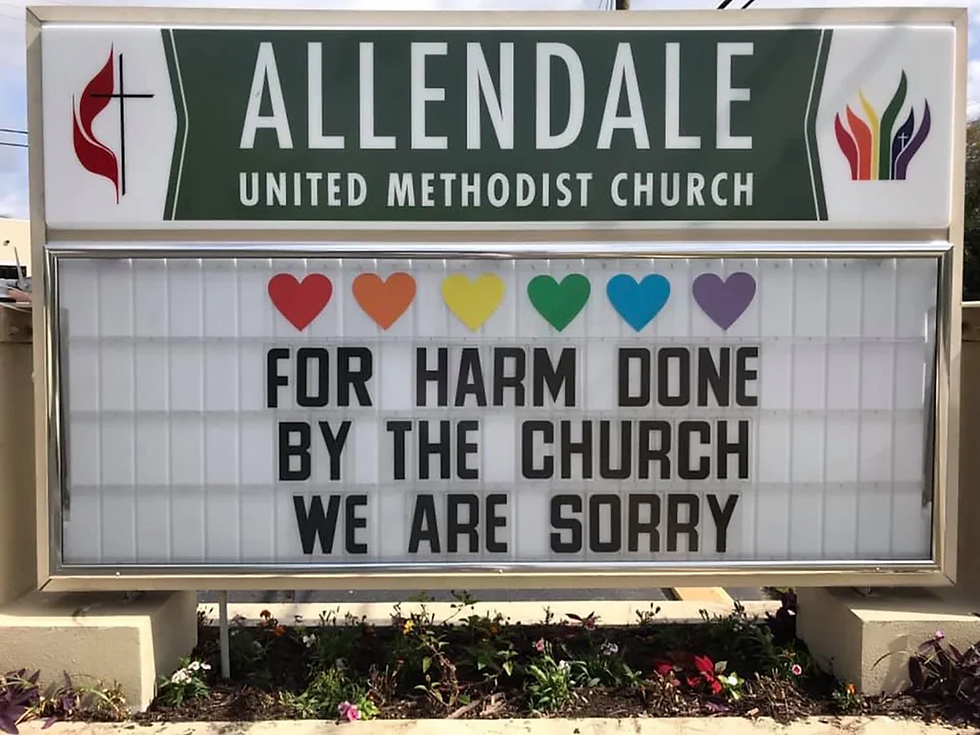United Methodist Church Repeals Ban on LGBTQ Clergy
- Victor Nwoko
- May 5, 2024
- 2 min read
The United Methodist Church on Wednesday repealed its 1984 ban on LGBTQ clergy with an overwhelming 692–51 vote by church leaders at its general conference. The conference, concluding on May 3, also saw the church rolling back several other anti-LGBTQ policies, including bans on performing gay marriage and funding queer-friendly ministries.
The passing of these measures marked a new era for the church. During the 2019 convention, delegates, comprising clergy and laypeople, voted 438 to 384 to uphold the bans overturned in this year’s conference and increased penalties for violating them. However, 2024 represents the first convention following an ideological split between conservative and progressive Methodists, leading some parishes to defy restrictions on LGBTQ worshippers while others remained steadfast.
Between 2019 and 2023, one-quarter of US Methodist denominations separated from the United Methodist Church. As the progressive faction of the church gained momentum, many conservative parishes broke away from the United Methodist Church, paving the way for progressives to reverse anti-LGBTQ bans with strong support.
Nevertheless, the struggle for equality continues. Wednesday’s repeal does not mandate that all parishes accept queer clergy. It also applies solely to Methodist churches in the US, as parishes from other countries govern themselves. Nonetheless, even this modest victory elicited an enthusiastic response from the crowd. Advocates hugged and cheered with tears in their eyes, as reported by the Associated Press, and celebrations echoed outside the convention center.
Guthrie Graves-Fitzsimmons, author of Just Faith: Reclaiming Progressive Christianity, emphasized in an NBC News op-ed that these changes should signify a shift in the cultural perception of queerness in religion. “We can dispel the notion that religion and LGBTQ rights are inherently conflicting,” he wrote. “Just as positive views on LGBTQ rights have increased, Christian groups have also evolved their theological perspectives on human sexuality and gender identity.”




















Comentarios